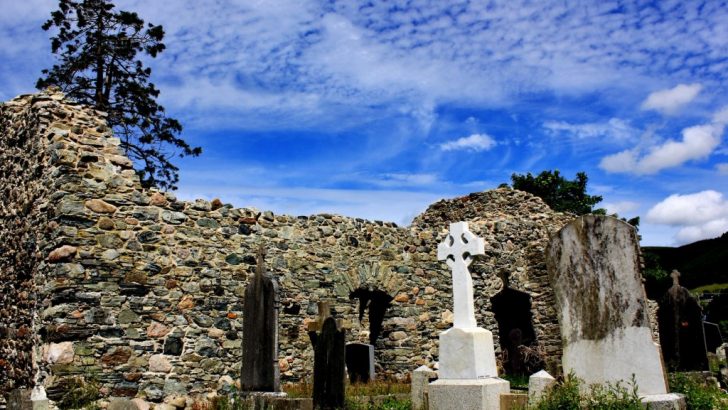What does it mean to be pro-life? To me it means defending human life from conception until the natural end of life; not deliberating taking human life, unless in extreme cases of self-defence. If a mad axeman is coming towards you with homicidal intent, you would be reasonably entitled to defend yourself, and those around you.
But being pro-life doesn’t – in my view – mean preserving human life at all costs. Life must come to a natural end. We must all face that. And this leads me to dissent, somewhat, from the majority attitude in managing this Coronavirus emergency.
Lockdown
In Britain, as in Ireland, everyday existence is now in total lockdown. High streets are in ghost towns. Businesses are closed, and many will never again re-open. All places of sport, recreation and leisure, let alone churches or locations of culture and learning are shut. Draconian regulations are put in place restricting contact and movement.
Restricting contact is sensible, when faced with an infection which is highly contagious.
But let me bring in another source of guidance here: St Thomas Aquinas. Aquinas, in considering whether a war was ‘just’ or not, stressed the concept of ‘proportionality’. An action had to be ‘proportionate’ to be just.
And though many will disagree with me, I ask if the approach to managing the virus has been disproportionate – and maybe therefore unjust.
In Britain, a range of voices – from the commentator Peter Hitchens to historian Sir Max Hastings to the former Justice of the Supreme Court, Jonathan Sumptio – have asked whether it is proportionate to wreck the economy, saddle future generations with enormous debt, cause other illnesses to be ignored or sidelined, prompt mental health stress and hugely increase state power in order to halt an infection which most people will experience with only quite mild symptoms?
Lord Sumption has called the lockdown approach “collective hysteria” which exaggerates the threat to life. He points out that most people recover; those who do not are often already very ill or fragile.
These dissenters are accused of being willing to throw the old, the vulnerable and the already unwell to the wolves, and of putting Mammon before humanity. Human life should be the number one priority, to be protected at all costs.
In one sense, it’s nice to see so many people cherishing human life.
I don’t consider it proportionate for society to go into total lockdown to protect my health”
But if vast numbers of people all over Western Europe are reduced to pauperism, if countless small family businesses are ruined, if pensions fall off a cliff, if abortion figures leap dramatically – as they will if there is a serious depression – will these factors not also harm human life?
Churches could close permanently, unable to be sustained by an impoverished population which has perhaps felt abandoned by the lockdown.
Therefore, it seems to me to be proportionate to take some risks in managing this emergency. Sweden has done so: cafés, bars, shops and other places of public congregation have remained open. There are no draconian regulations – the Swedish government says it trusts people to practice voluntary self-distancing, using common sense, not coercion.
Their rates of fatality from the coronavirus (Covid-19) are half that of neighbouring Norway, which has taken the lockdown approach.
I may well get the virus – I’m in the age frame, and the vulnerable bracket too, with a respiratory condition. But I don’t consider it proportionate for society to go into total lockdown to protect my health. Yes, I’m self-isolating, wearing a face-mask and trying to behave responsibly. But I am deeply worried about what the consequences of these extraordinary and compulsory measures may be.
Brónach – a mother of saints
For these exceptional times, I’m examining some of the early Irish saints (drawn on Pádraig Ó Riain’s immense and scholarly Dictionary of Irish Saints). This week, Bronach of Kilbroney.
Brónach is a Co. Down saint, dating from soon after St Patrick’s conversion of Ireland. She was the daughter of Mileac, who was said to have shared Patrick’s slavery.
She was also the mother of three saints: Caolán of Nendrum, Damhnad of Tedavnet and Fursa of Killursa.
Some sources in Kildare claim that Brónach was a subject of St Brigid.
A traditional legend in Armagh also links her to Baile na Cille, now Ballykeel in the parish of Forkhill, South Armagh.
A clog bán – a white bell – which was probably a relic of the saint was discovered in the ruins of Kilbroney church, near Rostrevor. Brónach’s feast day is April 2.


 Mary Kenny
Mary Kenny Ruins of the ancient Church founded by St Bronach in Rostrevor, Kilbroney.
Photo: Rostrevor Holidays
Ruins of the ancient Church founded by St Bronach in Rostrevor, Kilbroney.
Photo: Rostrevor Holidays 